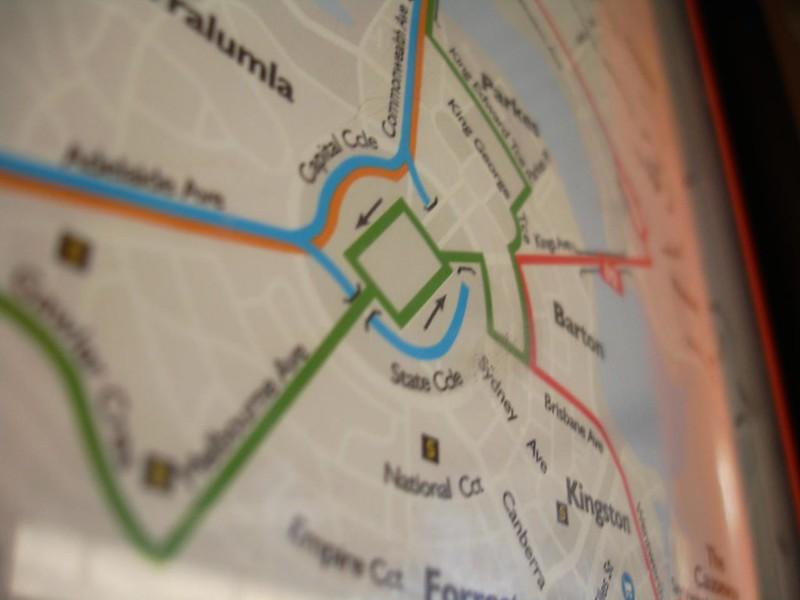How the Australian public service really works: policy
Posted By Peter McCawley on February 3, 2021 @ 06:00

Watch what ministers do, not what they say
Discern what ministers mean, because ultimately that’s where they’ll head.
The public service must manage and massage the zigzags.
When what a minister proclaims gets too far from what’s wanted or needed by that minister (and faction and party and government), something has to give. Prepare for crash or shift, shuffle and course correction.
Such are the rules for any public servant grappling with the differences between nominal and real policy. These differences are important, even vital, in how power operates in Canberra.
Politicians and public servants seldom go near a public discussion of the nominal–real distinction.
Much sturm und drang will fall upon a minister (or bureaucrat) who admits to core and non-core promises [1], or that the figures are rubbery, or even that—perhaps, just, maybe—a small change in course might be needed. Doing any of this in front of a microphone risks entering the minefield of ‘broken promises’ [2].
Economists, though, are used to talking about nominal and real prices. Nominal prices are the prices one sees on products every day. Real prices are the nominal prices adjusted for inflation. There’s a similar phenomenon in announcements about government policy: nominal policy is the label on top, while real policy is all the different stuff jumping around inside the box.
Nominal policy is what ministers say about things (reflected, for example, in daily press releases). But real policy is what they are actually thinking (hoping and plotting).
Power flows around and between these nominal and real poles. And sometimes when the poles get too far out of alignment—one going negative and the other positive—the sparks are spectacular.
The Liberal Party, for example, is having trouble juggling nominal policy on energy issues and climate change with real policy. Nominal policy is that Australia will meet all of its international obligations and will promote the use of renewables across the Australian economy. But real policy is to juggle the commitments to these goals so that it is unclear whether international commitments are within reach while, simultaneously, the use of a major fossil fuel, gas, is being promoted.
Compared to the Coalition, Labor is finding it somewhat easier to balance nominal and real climate change policy—although Joel Fitzgibbon quitting the front bench [3] demonstrates Labor’s own problems.
On one hand, Labor woos the green vote by talking of the importance of environmental goals. Following last year’s election in the ACT, Labor reaffirmed its long alliance with the Greens and promised to pursue agreed environmental policies. At the very same time, the Labor government in Queensland had approved the go-ahead for the Olive Downs coking coal project in the Bowen Basin and was talking of the jobs that the new coal project would provide.
Perhaps the nicest description of the nominal–real balance was former Labor minister Gareth Evans’s defence of what he called ‘political dexterity’, offering a classic Evansism: ‘If you can’t ride two horses at once, you shouldn’t be in the bloody circus.’
Senior public servants are well aware of the differences involved in the balancing effort; they are confronted with the facts of real policy in their private meetings with ministers and discussions in ministerial offices.
Public statements provide, at best, a vague guide to what ministers really have in mind—one of many reasons that senior public servants strive to get ‘face time’ with ministers, set foot in Parliament House whenever possible, and speak to ministerial minders as often as possible.
So, if the visible is not a reliable guide to what ministers are thinking, how do you tell the difference? The simplest answer (a boiled-down version of the public service method) is that peering behind the screen involves observation multiplied by time: see what ministers and governments say, then over time observe what they actually do.
Often, public ministerial statements are designed to mislead. But ministerial actions usually provide a reliable guide to the real intentions and the real policies of governments. Watch what they do—watch the budgets, watch whom they meet, watch how they spend their time.
The froth of the nightly news matters, but it can mislead. Public pronouncements are power at play. What gets done is power in action.
Article printed from The Strategist: https://aspistrategist.ru
URL to article: /how-the-australian-public-service-really-works-policy/
URLs in this post:
[1] core and non-core promises: https://www.news.com.au/finance/economy/federal-budget/the-most-memorable-times-politicians-have-tried-to-wriggle-out-of-their-election-promises/news-story/1782649eca5dbf3a464d6b5520c8ccd9
[2] minefield of ‘broken promises’: https://www.crikey.com.au/2014/05/21/porkies-the-biggest-broken-promises-in-australian-politics/
[3] quitting the front bench: https://theconversation.com/joel-fitzgibbon-quits-labor-frontbench-but-not-his-fight-over-the-partys-climate-policy-149825
Click here to print.